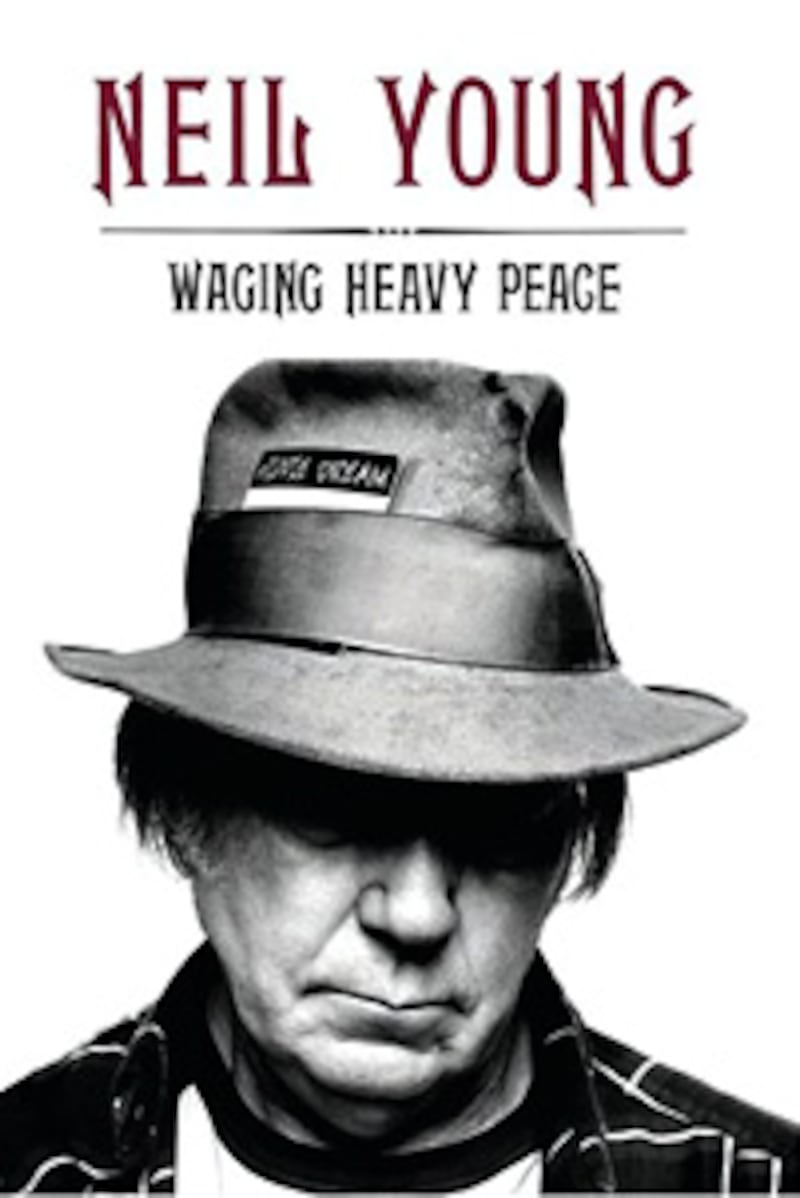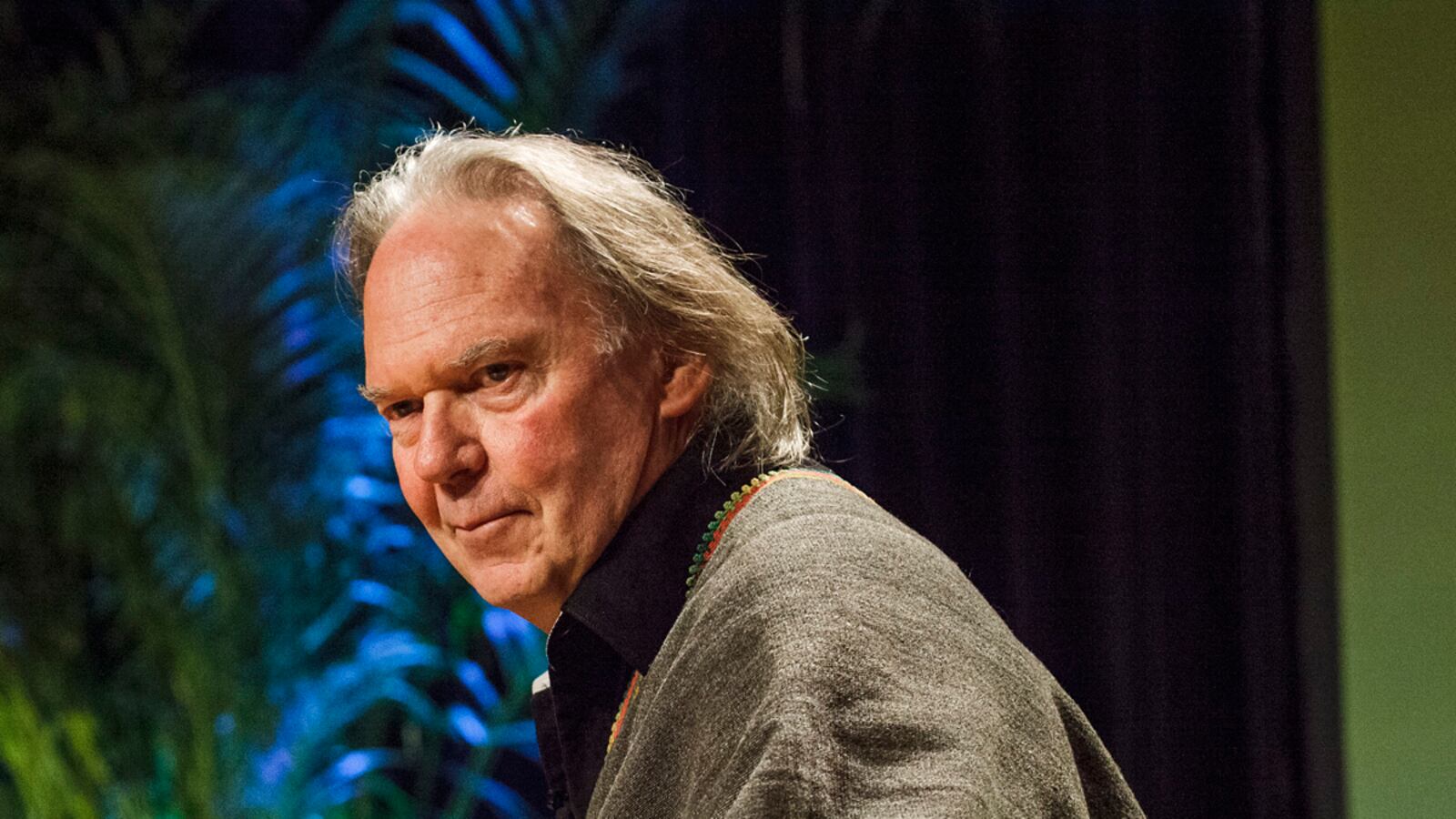Many musicians only dream of having the career Neil Young has had, and in his autobiography, Waging Heavy Peace, he takes a look back on his journey to the top. From his early protest rock days with Buffalo Springfield and his jam sessions with Crazy Horse to his solo career, there aren’t many stones Young hasn’t already turned. But in his new autobiography we get a look at the man behind the music. Young recounts his sons' complicated medical history and discusses Kurt Cobain’s decision to quote his lyrics in his suicide note.

When Neil Young Met Stephen Stills
Before he was the Stills in Crosby, Stills & Nash, Stephen Stills collaborated with Neil Young in Buffalo Springfield. Young first met Stills while touring Ontario with his first band, the Squires, and the two bonded instantly and formed Buffalo Springfield in 1966 with five others. Young makes it clear that he think his friendship with Stills is stronger than his other bandmates. “I never felt that David [Crosby] and Graham [Nash] had the same sense about him,” he writes. “I think I respect Stephen’s talent and genius in a way that they don’t.”
Jams with Charles Manson
Neil Young has collaborated with several big-name artists throughout his decorated career. But while visiting a friend’s house in the Pacific Palisades, Young had one of the unlikeliest jam session partners of all time: Charles Manson. “After a while, a guy showed up, picked up my guitar, and started playing a lot of songs on it. His name was Charlie,” Young writes as he remembers his encounter with this stranger. “Shortly afterward, the Sharon Tate-LaBianca murders happened, and Charlie Manson’s name was suddenly known around the world. We couldn’t believe we had played with him.”
Becoming an American
As a Canada native, Neil Young had to illegally sneak across the northern border to make it to the States. Each time Young got pulled over by the police (which happens a lot in this book), he had to worry about deported. That is, until he bought a green card and officially became a U.S. citizen. “I can’t tell you how good it felt to be free in the USA without worrying about being deported at that time!” he exclaims. “FREEDOM ROCKS! Hey. Is that a song or what? I might be having a breakthrough moment…”
Zeke and Ben Young Born with Medical Issues
Both of Young’s sons, Zeke (with Carrie Snodgress) and Ben, were diagnosed with cerebral palsy shortly after birth. Young had a hard time coming to terms with the fate of his children and recounts the hardships he and his wife, Pegi, went through. “I walked around in a fog for weeks. I couldn’t fathom how I had fathered two children with a rare condition that was not supposed to be hereditary,” he writes. “I was so angry and confused inside.”
The First Time on the Radio
Long before he created Buffalo Springfield or collaborated with Crosby, Stills, Nash & Young, Neil Young played local gigs in Canada with the Squires. In 1963, Young and the Squires recorded their first album which was released on V Records, much to his excitement. “Then the big moment came, and we heard ‘The Sultan’ on the radio! I was in my mother’s car with my bandmate Ken Koblun, driving somewhere. I felt so good,” remembers Young. “My mother was telling everyone she knew. I could hear her on the phone calling all of her friends. She was my biggest fan!”
OMG
Have you ever wondered if Neil Young uses internet lingo? Of course you have. Young uses a popular abbreviation when describing his father’s spaghetti recipe. “We had spaghetti a lot. It was really good with my dad’s special sauce. Before he poured in the chili peppers, he used to heat it up in a big pot. OMG, it smelled great!” he writes.
Breakfasts with His Father
Young’s father had a complicated medical history and struggled with dementia in his old age. However, Young remembers the times he and his father had in his youth. “I would go into the kitchen, where Daddy would be creating a batch of pancakes for breakfast. Every week he tried something new: banana, blueberry, strawberry, combinations, you name it. (Once he even tried orange, and we both agreed that didn’t work.)” he remembers. “We would sit at the table and enjoy the pancakes together, just my dad and me—nobody else was up yet.”
Kurt Cobain’s Final Words
In Kurt Cobain’s suicide note, the grunge-rock icon quoted Young’s lyrics “It’s better to burn out than to fade away” from his song “My My, Hey Hey.” Young discusses his relationship with Cobain and the effect the note had on him. “He was not just an entertainer; he was an artist and songwriter … I knew him and recognized him for who he was. I wanted to talk to him,” he writes. “So when he died and left that note, it struck a deep chord inside of me. It fucked with me.”
Young (Accidentally) Gives Children Poison Oak
For years, Young has made an effort to be involved with his community and started the tradition of inviting local children and their parents to Broken Arrow Ranch for small birthday parties. Each year, Young collects firewood so the children can roast marshmallows—but one year he made an awful mistake when collecting sticks. “The next day, one of the guests came down with a rash. The next day after that, everyone had it … All of them had poison oak!” he writes. “I felt like a Canadian terrorist who had poisoned all of the unsuspecting residents in a crime that was years in the making … I am not allowed to gather the sticks anymore. What a tradition.”






